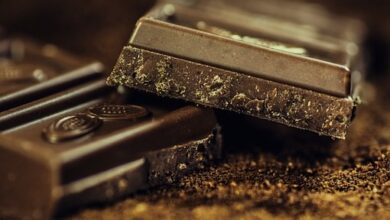Proven Health Benefits of Oolong Tea & How to Use it (Evidence Based)
1. Oolong Tea for Weight Loss
For centuries, Traditional Chinese Medicine (TCM) has used oolong tea to help people lose weight. There is more than just anecdotal evidence that oolong tea can actually help with weight loss.
For example, a study published in the Chinese Journal of Integrative Medicine showed that by introducing oolong tea into the diet, body fat in obese people was reduced.1
Over a period of 6 weeks, over 100 obese people took 8 g of oolong tea daily. At the end of the study over 3/4 of participants had lost more than 1 kg of weight, and some more than 3 kg. There was also a notable decrease in cholesterol levels. It was concluded that oolong tea could decrease body fat content and reduce body weight by improving lipid metabolism. It was also concluded that continued consumption of oolong tea may prevent obesity.
Other studies have shown that the polyphenols in oolong tea can help reduce fat that accumulates around the body’s vital organs.
Traditionally, the Chinese drink oolong tea along with their meal and this can have a beneficial effect on weight management. The Journal of Nutrition conducted an experiment on men to examine how oolong tea affects the body’s metabolism.3
The participants were given water, full-strength oolong tea, half-strength oolong tea, or water with caffeine, equivalent to amount in the full-strength tea. They had to consume one glass 5 times a day. It was found that metabolic rate and fat oxidation in those who had the full-strength oolong tea was significantly higher than the other drinks.
It seems that the catechins and polyphenols (both of which are antioxidants) along with caffeine4 in oolong tea help the body metabolize fat better and more efficiently.
2. Oolong Tea for Eczema
If you suffer from eczema or atopic dermatitis, you could boost your treatment by drinking 3 cups of oolong tea daily. This can be especially useful if the dermatitis is not responding well to topical treatments.
One study examined the effects of oolong tea on people who had dermatitis that was difficult to treat. The participants were asked to drink oolong tea 3 times a day with their regular meals. After one month over half of the participants found that there was a marked improvement in their skin condition.5
The antioxidant properties of oolong tea can help to heal the skin from within.
3. Oolong Tea for Type 2 Diabetes
The combination of antioxidant polyphenols and caffeine in oolong tea also help to control blood sugar levels. Drinking oolong tea can be an effective way to manage type 2 diabetes.
The American Diabetes Association published a research which showed that regularly drinking oolong tea has a positive effect in managing blood sugar levels.
In the study, the participants continued taking their regular diabetes medication and one group of participants consumed water regularly and the other consumed strong oolong tea 5 times a day. It was found that after one month the blood sugar levels in the participants who had the oolong tea significantly decreased.
4. Possible Cancer Prevention
Tea, in general, is known to help reduce the risk of developing certain cancers.7 This is due to the high amount of antioxidants in tea which help to kill off free radicals in the body.
The journal Cancer Epidemiology reported on the results of one study which showed that regular tea consumption reduces the risk of ovarian cancer.8
The polyphenols in tea have also been cited to have beneficial effects on prostate cancer9, can help prevent esophageal and lung cancers10, and one study showed that an oolong tea extract killed off cancer cell in stomach cancer.
5. Oolong Tea for Stress
Tea is well-known for its relaxing properties. There is nothing like a cup of tea to calm the nerves and help the mind relax. The reason for this seems to be the amino acid L-theanine, and oolong tea contains a high amount of this.
L-theanine helps the mind relax without making a person feel sleepy and it is required for dopamine production in the body. Also L-theanine reduces the stimulating effect of caffeine. Therefore, oolong tea can help relieve your stress.
The Asia Pacific Journal of Clinical Nutrition stated that L-theanine helps the mind relax and it has a positive effect on a person’s alertness. 12
So, a cup of delicious oolong tea can help you feel more relaxed and help you reduce your stress levels.
6. Antioxidative Activities of Oolong Tea
In order to keep healthy and prevent the risk of developing various diseases, it is important to have a diet rich in antioxidants. There has been specific research carried out onto the antioxidative properties of oolong tea which have found that it has strong antioxidant properties.13
Another study checked the anti-oxidant activity of oolong tea using human low-density lipoprotein (LDL). The study concluded that oolong tea has beneficial effects on health due to its anti-oxidative action.14
7. Oolong Tea for Heart Disease
Coronary artery disease is where plaque builds up inside the coronary arteries. This can lead to angina and a heart attack. However, a study showed that by drinking around 33 fl oz (1 liter) of oolong tea daily a person can reduce the risk of plaque buildup in the arteries.15
Researchers have also found that oolong tea helps to reduce the risk of death from various cardiovascular diseases.16
8. Bone Loss Prevention
The antioxidant properties of oolong tea can also help strengthen bone density, thus reducing the risk of developing osteoporosis.
One study showed that habitual tea drinkers, in general, have a much better bone mass density compared to those people who never or only occasionally drink tea.17 Another study into the effects of oolong tea and bone density showed that bone mass density was higher in postmenopausal women than in those who didn’t drink tea.18
9. Keep your Teeth Healthy
Extracts of oolong tea have also found to contain properties which can promote good oral hygiene.
One study compared the effects of rinsing before and after meals with an oolong tea extract and rinsing with just 0.2% ethanol. Researchers found that there was a significant decrease in dental plaque when oolong tea extract was used as the mouthwash.
This is because oolong tea also contains antibacterial properties which are specifically effective against Streptococcus mutans, a bacterium mainly found in the mouth.
How to Make Oolong Tea
It is very easy to enjoy all the health benefits of oolong tea.
You can buy a ready-made oolong tea bags, or you can prepare it using loose oolong leaf (like this one).
Because loose oolong tea comes in different leaf shapes, it’s hard to choose one-size-fits-all method for preparing the tea, but as a general guideline for each cup or 6 oz (180 ml) water use 1-2 tsp if the tea is rolled into balls and up to 2 tablespoons if it comes as whole or broken leaves.
Heat the water to 185–205ºF (85–96ºC) which is the ideal temperature for brewing oolong tea without breaking down its aromatic substances.
Steep it for two to five minutes, depending on how concentrated you want your tea.
It is recommended to keep the lid on so that the medicinal properties are kept in the tea.
Oolong Tea and Caffeine
One concern that some people have is about the amount of caffeine in oolong tea. One cup of oolong tea contains between 50-75 mg of caffeine. This is slightly more than green tea and slightly less than black tea.
Oolong Tea – Precautions
One of the precautions of consuming large amounts of oolong tea is due to its caffeine content. Caffeine can affect people in different ways, but drinking more than 5 cups of oolong tea a day can cause a person to feel the effects of too much caffeine. These side effects could be headaches, sleep problems, and nervousness.
People with high blood pressure should also be careful about the amount of caffeine they consume. However, this doesn’t seem to happen in people who don’t have high blood pressure and regularly drink oolong tea.
Drinking too much oolong tea can also cause calcium to be flushed out of the body. Therefore, if you have osteoporosis, it is best not to drink more than 3 cups per day.
According to WebMD, oolong tea in small amounts is probably not harmful for pregnant women or women who breastfeed, and it is recommended not to drink more than 2 cups a day of oolong tea.




